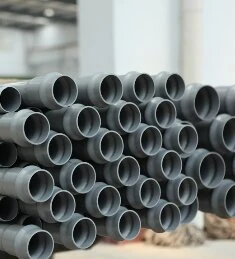Dec . 09, 2024 17:31 Back to list
Durable Solid HDPE Pipe for Reliable Water and Wastewater Management Solutions
The Advantages and Applications of Solid HDPE Pipe
High-Density Polyethylene (HDPE) pipes have gained significant traction in various industries due to their remarkable properties and versatile applications. Solid HDPE pipes, in particular, stand out for their unique characteristics that cater to specific needs in construction, infrastructure development, agriculture, and more. Understanding these advantages and applications can help stakeholders make informed decisions when selecting piping solutions.
Durability and Longevity
One of the primary benefits of solid HDPE pipes is their exceptional durability. Made from high-density polyethylene, these pipes exhibit resistance to various environmental factors, including corrosion, chemicals, and UV radiation. Unlike traditional materials such as steel or concrete, which can degrade over time, HDPE pipes maintain their structural integrity for decades. This longevity reduces the need for frequent replacements, resulting in lower maintenance costs over the lifespan of the installation.
Flexible and Lightweight
Another significant advantage of solid HDPE pipes is their flexibility and lightweight nature. These pipes can bend to conform to different layouts and terrains, which is particularly useful in applications where traditional rigid pipes would require extensive joint fittings. The lightweight property also simplifies transportation and installation processes, reducing labor costs and making them an ideal choice for remote or hard-to-reach areas.
Resistance to Intrusion and Blockage
Solid HDPE pipes are designed with a smooth interior surface, which minimizes friction and enhances flow efficiency. This design feature reduces the likelihood of blockages and allows for the easy passage of various materials, including wastewater and stormwater. Additionally, their resistance to root intrusion makes them a favorite in applications where vegetation could potentially disrupt pipe integrity, such as in agricultural settings or sewer systems.
solid hdpe pipe

Environmental Impact
As environmental awareness grows, many industries are seeking sustainable alternatives to traditional construction materials. Solid HDPE pipes are an excellent choice in this regard. They are recyclable and can be made from post-consumer waste, reducing the overall carbon footprint. Furthermore, their longevity means fewer resources are consumed over time, and their energy consumption during production is lower compared to traditional materials, making them an eco-friendly option for modern infrastructure projects.
Applications Across Diverse Industries
The versatility of solid HDPE pipes makes them suitable for a wide range of applications. In the construction industry, they are commonly used for water distribution systems, sewage and drainage systems, and gas pipelines. Their excellent resistance to chemical leaching ensures safety when transporting potable water and fuels.
In agriculture, solid HDPE pipes are often employed in irrigation systems. Their durability and flexibility allow for efficient water management, ensuring crops receive the necessary hydration while minimizing water waste. Furthermore, they can be used in aquaculture setups, providing a reliable means of transporting water and nutrients.
The telecommunications sector also benefits from solid HDPE pipes, as they are used to protect fiber-optic and electrical cables. Their strength and resistance to environmental stresses ensure that sensitive infrastructure remains intact and operational.
Conclusion
In summary, solid HDPE pipes offer a plethora of advantages that make them an ideal choice across various industries. Their durability, flexibility, resistance to corrosion and blockage, and environmental benefits highlight their growing significance in modern infrastructure and agricultural practices. As industries continue to prioritize sustainability and efficiency, the demand for solid HDPE pipes is likely to increase, paving the way for a brighter, more resilient future in piping solutions.
-
Durable PP Rigid Sheet: Lightweight, Chemical Resistant Solutions
NewsAug.21,2025
-
PVC Grey Sheet for Extraction: Chemical Resistant & Durable
NewsAug.19,2025
-
Durable PVC Pipe Fittings for Plumbing & Irrigation Needs
NewsAug.18,2025
-
HDPE Steel Belt Reinforced Spiral Corrugated Pipe | High Strength
NewsAug.17,2025
-
HDPE Pipe Fittings: Durable, Leak-Proof Solutions
NewsAug.16,2025
-
Premium CPVC Sheet: High-Temp & Chemical Resistant Solutions
NewsAug.15,2025

